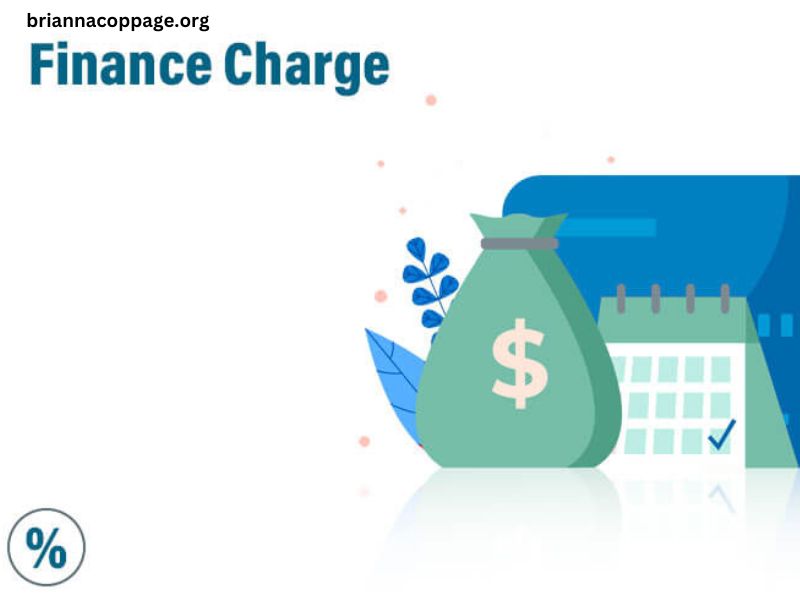Finance charges are a critical aspect of managing personal and business finances. They often appear on credit card statements, loan agreements, and various financial documents. Understanding what finance charges are, how they are calculated, and their implications on your financial health can help you make informed decisions about borrowing and managing credit.
What is a Finance Charge?
A finance charge is the cost of borrowing money, typically expressed as a dollar amount or as an annual percentage rate (APR). It encompasses all fees and interest that a borrower is required to pay to a lender for the privilege of using their funds. This can include interest on loans, credit card balances, late payment fees, and other charges associated with borrowing.
In essence, a finance charge is the price you pay for the convenience of using borrowed money. It can vary significantly based on several factors, including the lender’s policies, the type of credit product, the borrower’s creditworthiness, and the prevailing interest rates in the market.
Types of Finance Charges
- Interest Charges: The most common component of finance charges, interest is typically calculated based on the outstanding balance on a loan or credit card. The interest rate may be fixed (unchanging over the loan term) or variable (fluctuating based on market conditions).
- Late Payment Fees: If a borrower fails to make a payment by the due date, the lender may impose a late payment fee, which can significantly increase the overall finance charge.
- Annual Fees: Some credit cards charge an annual fee for the benefits they offer, which is also considered a finance charge. This fee is charged regardless of whether the card is used.
- Transaction Fees: Certain loans or credit products may have fees for specific transactions, such as cash advances or foreign transactions, which also contribute to the total finance charge.
- Loan Origination Fees: When taking out a loan, lenders may charge an origination fee, which can be a percentage of the loan amount. This fee is typically deducted from the loan proceeds and is considered part of the finance charge.
How Finance Charges Are Calculated
Calculating finance charges can vary based on the type of loan or credit product. However, the general formula for calculating interest charges is:
Finance Charge=Outstanding Balance×Interest Rate×Time Period\text{Finance Charge} = \text{Outstanding Balance} \times \text{Interest Rate} \times \text{Time Period}
- Outstanding Balance: This is the amount of money owed on the credit account.
- Interest Rate: This is usually expressed as an APR. To find the monthly interest rate, divide the APR by 12.
- Time Period: This refers to the duration for which the interest is being calculated, typically expressed in months.
For example, if you have a credit card balance of $1,000 with an APR of 18%, your monthly interest charge would be calculated as follows:
Monthly Interest Rate=18%12=1.5%\text{Monthly Interest Rate} = \frac{18\%}{12} = 1.5\% Finance Charge=1,000×0.015=$15\text{Finance Charge} = 1,000 \times 0.015 = \$15
Importance of Understanding Finance Charges
Understanding finance charges is vital for several reasons:
- Cost of Borrowing: Knowing how much you will pay in finance charges helps you assess the overall cost of borrowing. This knowledge allows you to make informed decisions about whether to take on a loan or use a credit card.
- Budgeting: By factoring finance charges into your budget, you can better manage your monthly expenses and avoid overspending.
- Credit Management: Understanding finance charges can help you strategize your payments. For example, paying off your credit card balance in full each month can help you avoid finance charges altogether.
- Comparing Offers: When comparing loans or credit products, it’s essential to look beyond the interest rate and consider all finance charges. Some offers may appear attractive due to low interest rates but come with high fees that can make them more expensive in the long run.
- Credit Score Impact: High finance charges often indicate high levels of debt, which can negatively impact your credit score. Managing your finance charges effectively can help you maintain a healthy credit score.
Common Misconceptions about Finance Charges
- Finance Charges are Only Interest: Many people believe finance charges consist solely of interest payments. However, as discussed, they include various fees and costs associated with borrowing.
- All Lenders Calculate Finance Charges the Same Way: Different lenders may use different methods to calculate finance charges, so it’s crucial to read the terms and conditions of your loan or credit agreement carefully.
- Finance Charges Are Fixed: Finance charges can vary based on factors such as payment history, changes in interest rates, or the type of account you hold. It’s essential to stay informed about any changes that may affect your finance charges.
Reducing Finance Charges
If you find yourself facing high finance charges, there are several strategies you can employ to minimize them:
- Pay Off Balances in Full: The simplest way to avoid finance charges on credit cards is to pay off your balance in full each month. This practice not only saves you money but also helps build a positive credit history.
- Make Payments on Time: Late payments can lead to additional finance charges. Set reminders or automate payments to ensure you meet your due dates.
- Negotiate Fees: If you have a good payment history with a lender, consider negotiating for lower interest rates or the elimination of certain fees.
- Shop Around: Before committing to a loan or credit product, compare offers from multiple lenders. Look for the most favorable terms that suit your financial situation.
- Consider a Balance Transfer: If you have high-interest credit card debt, consider transferring your balance to a card with a lower interest rate or a promotional 0% APR offer. Be mindful of balance transfer fees, which can offset savings.
Conclusion
Finance charges play a significant role in the world of borrowing and credit management. By understanding what they are and how they work, you can make more informed financial decisions. Whether you’re managing personal debt or business finances, being proactive about finance charges can lead to better budgeting, reduced costs, and ultimately, a healthier financial future. Always take the time to read the fine print and ensure you understand all potential costs associated with borrowing. With the right knowledge and strategies, you can navigate the complex landscape of finance charges effectively.






